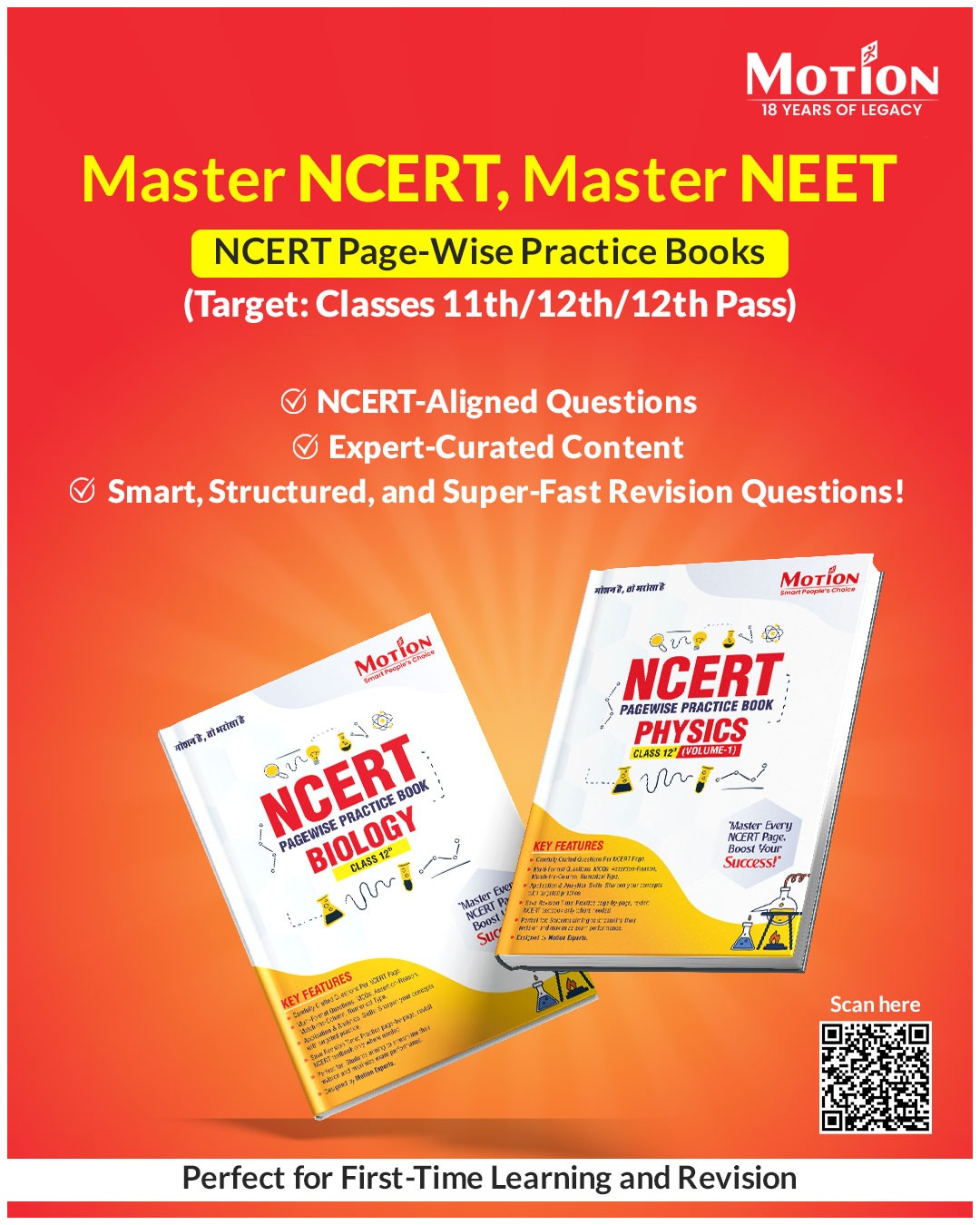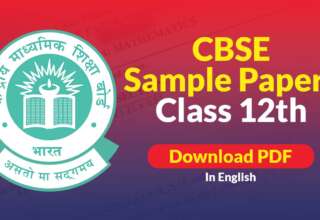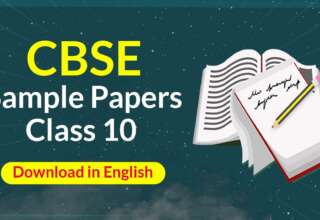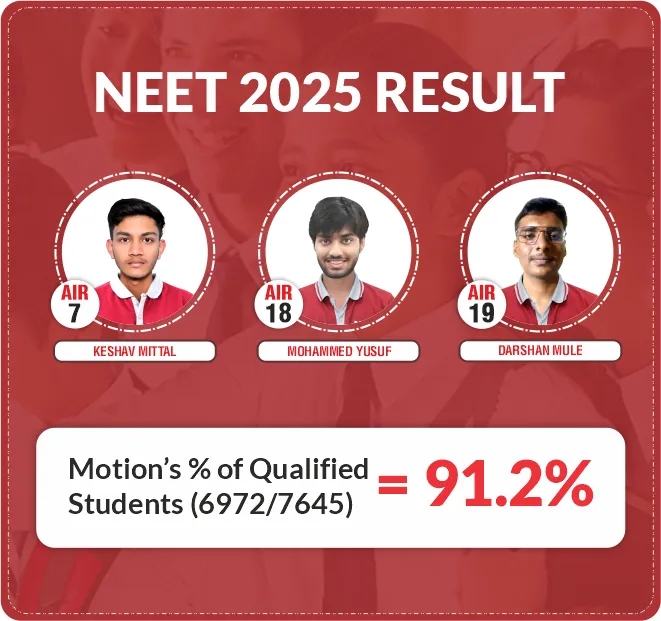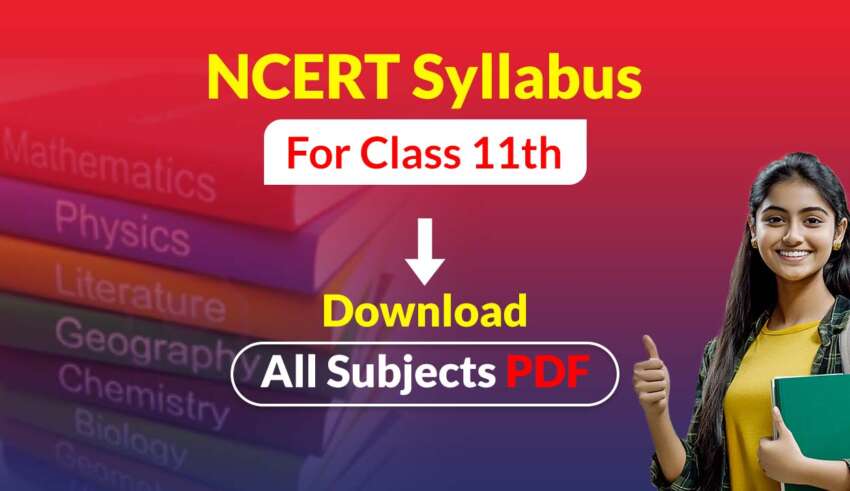
NCERT Syllabus for Class 11 2025-26: If you are a class 11th student preparing for your exams, then you must refer to the NCERT Class 11 syllabus for Math, Physics, Biology, Chemistry, English, and Hindi. This NCERT syllabus for class 11 is designed to provide students with an in-depth understanding of essential concepts and lay a strong foundation for future exams like JEE, NEET, or board exams.
Let’s discover the NCERT Class 11 syllabus for the 2025-26 academic year, discussing its importance, subject-wise breakdown, and tips for effective preparation.
Why is the NCERT Class 11 Syllabus Important?
The 11th class syllabus of NCERT is specially curated by expert faculty to ensure students are aware of the critical topics that enhance their knowledge base and analytical skills. Here are a few reasons why this syllabus is vital:
- Foundation for Competitive Exams: Whether you aim for engineering, medical, or other competitive exams, the NCERT syllabus forms the core of these exams’ question papers.
- Conceptual Clarity: The syllabus focuses on strengthening fundamental concepts, which are crucial for higher studies.
- Aligned with National Education Standards: As the NCERT syllabus is designed after extensive research, it aligns with national educational requirements, ensuring students receive a balanced education.
- Structured Learning: Topics are organized systematically, promoting step-by-step learning that helps students grasp concepts more effectively.
Introducing Motion’s NCERT Page-wise Practice Book – your ultimate guide to mastering Class 11th, 12th & 12th Pass JEE/NEET syllabus with:
- ✅ NCERT-Aligned Questions for in-depth understanding
- ✅ Expert-Curated Content for structured learning
- ✅ Smart & Efficient Practice to boost your accuracy
- ✅ Specially designed to make learning smarter and more effective.
- ✅ Scan the QR code and get your NCERT today.
Subject-Wise Breakdown of NCERT Class 11 Syllabus
NCERT Syllabus for Class 11 Mathematics 2025-26
Mathematics is one of the most important subjects for Class 11 students, especially for those aspiring to pursue engineering or science-related fields. The NCERT Class 11 Maths Syllabus includes topics like:
| Chapter Name | Topics / Sub-Topics |
| Sets | Sets and their representations, Empty set, Finite and Infinite sets, Equal sets, Subsets, Subsets of a set of real numbers, especially intervals (with notations). Universal set. Venn diagrams. Union and Intersection of Sets. Difference of sets. Complement of a set. Properties of Complement. |
| Relations & Functions | Ordered pairs. Cartesian product of sets. Number of elements in the Cartesian product of two finite sets. Cartesian product of the set of reals with itself (up to R x R x R). Definition of relation, pictorial diagrams, domain, co-domain and range of a relation. Function is a special type of relation. Pictorial representation of a function, domain, co-domain and range of a function. Real valued functions, domain and range of these functions, constant, identity, polynomial, rational, modulus, signum, exponential, logarithmic and greatest integer functions, with their graphs. Sum, difference, product and quotients of functions |
| Trigonometric Functions | Positive and negative angles. Measuring angles in radians and in degrees, and conversion from one measure to another. Definition of trigonometric functions with the help of the unit circle. Truth of the identity 𝑠𝑖𝑛2𝑥 + 𝑐𝑜𝑠2𝑥 = 1, for all x. Signs of trigonometric functions. Domain and range of trigonometric functions and their graphs. Expressing 𝑠𝑖𝑛 (𝑥 ± 𝑦) and 𝑐𝑜𝑠 (𝑥 ± 𝑦) in terms of 𝑠𝑖𝑛𝑥, 𝑠𝑖𝑛𝑦, 𝑐𝑜𝑠𝑥 & 𝑐𝑜𝑠𝑦 and their simple applications. |
| Complex Numbers and Quadratic Equations | Need for complex numbers, especially √−1, to be motivated by the inability to solve some of the quadratic equations. Algebraic properties of complex numbers. Argand plane. |
| Linear Inequalities | Linear inequalities. Algebraic solutions of linear inequalities in one variable and their representation on the number line. |
| Permutations and Combinations | Fundamental principle of counting. Factorial n. (n!) Permutations and combinations, derivation of Formulae and their connections, simple applications. |
| Binomial Theorem | Historical perspective, statement and proof of the binomial theorem for positive integral indices. Pascal’s triangle, simple applications. |
| Sequence and Series | Sequence and Series. Arithmetic Mean (A.M.) Geometric Progression (G.P.), general term of a G.P., sum of n terms of a G.P., infinite G.P. and its sum, geometric mean (G.M.), relation between A.M. and G.M |
| Straight Lines | Brief recall of two-dimensional geometry from earlier classes. Slope of a line and angle between two lines. Various forms of equations of a line: parallel to axis, point -slope form, slope-intercept form, two-point form, intercept form. Distance of a point from a line. |
| Conic Sections | Sections of a cone: circles, ellipse, parabola, hyperbola, a point, a straight line and a pair of intersecting lines as a degenerated case of a conic section. Standard equations and simple properties of parabola, ellipse and hyperbola. Standard equation of a circle. |
| Introduction to Three-dimensional Geometry | Coordinate Axes and Coordinate Planes in 3-D Space, Distance between Two Points, Section Formula |
| Limits and Derivatives | The derivative is introduced as the rate of change and the slope of a tangent to a curve. Students learn the intuitive concept of limits and how to find limits of polynomial, rational, trigonometric, exponential, and logarithmic functions. They also study the definition of a derivative and rules for finding derivatives of sums, differences, products, and quotients of polynomial and trigonometric functions. |
| Statistics | Measures of Dispersion: Range, Mean deviation, variance and standard deviation of ungrouped/grouped data. |
| Probability | Events; occurrence of events, ‘not’, ‘and’ and ‘or’ events, exhaustive events, mutually exclusive events, Axiomatic (set theoretic) probability, connections with other theories of earlier classes. Probability of an event, probability of ‘not’, ‘and’ and ‘or’ events. |
NCERT Syllabus for Class 11 Physics 2025-26
Physics in Class 11 introduces students to the fundamental principles governing the physical world. The NCERT syllabus for Class 11 Physics includes:
| Chapter Name | Marks | Topics |
| Units and Measurements | 23 | Need for measurement: Units of measurement; systems of units; SI units, fundamental and derived units. significant figures, Determining the uncertainty in the result. Dimensions of physical quantities, dimensional analysis and its applications. |
| Motion in a Straight Line | The topics include frame of reference, motion in a straight line, and the basic concepts of differentiation and integration used to describe motion. They also cover uniform and non-uniform motion, average and instantaneous speed and velocity, uniformly accelerated motion, velocity-time and position-time graphs, and the relations for uniformly accelerated motion using both graphical and calculus methods. | |
| Motion in a Plane | The topics include scalar and vector quantities, position and displacement vectors, and general vectors with their notations. They cover equality of vectors, multiplication of vectors by a real number, and operations like addition and subtraction of vectors. The concept of a unit vector, resolution of a vector in a plane, rectangular components, and scalar and vector products of vectors are also included. Additionally, motion in a plane is discussed with cases of uniform velocity and uniform acceleration, including projectile motion and uniform circular motion. | |
| Laws of Motion | Inertia, Newton’s first law of motion; momentum and Newton’s second and third law of motion. Law of conservation of linear momentum. impulse; Equilibrium of concurrent forces, Centripetal force, etc. | |
| Work, Energy and Power | 17 | Work done by a constant force and a variable force; kinetic energy, Notion of potential energy, work-energy theorem, power. conservative and nonconservative forces: conservation of mechanical energy; motion in a vertical circle; elastic and inelastic collisions in one and two dimensions, potential energy of a spring, etc. |
| System of Particles and Rotational Motion | Centre of mass, momentum conservation. Moment of a force, torque, angular momentum, law of conservation of angular momentum and its applications. Equilibrium, Moment of inertia, radius of gyration, values of moments of inertia for simple geometrical objects. Statement of parallel and perpendicular axes theorems and their applications, etc | |
| Gravitation | Acceleration due to gravity and its variation. universal law of gravitation, Gravitational potential energy, Geo-stationary satellites, orbital and escape velocity, Acceleration due to gravity and its variation, Kepler’s laws of planetary motion etc. | |
| Mechanical Properties of Solids | 20 | Poisson’s ratio, bulk modulus, Young’s modulus, shear modulus of rigidity, Stress-strain relationship, Elastic behaviour, Hooke’s law, etc. |
| Mechanical Properties of Fluids | Surface energy and tension, application of surface tension, and excess of pressure across a curved surface. Viscosity, terminal and critical velocity, Bernoulli’s theorem and its applications, Stokes’ law, Pascal’s law and its applications, effect of gravity, etc. | |
| Thermal Properties of Matter | Heat, temperature, Cp, Cv – calorimetry, change of state – latent heat capacity, specific heat capacity, Heat transfer-conduction, thermal expansion, convection and radiation, thermal conductivity, Stefan’s law, Greenhouse effect, Blackbody radiation, Wein’s displacement Law, etc. | |
| Thermodynamics | First law of thermodynamics, Heat engine and refrigerator, zeroth law of thermodynamics, isothermal and adiabatic processes, heat, work and internal energy, Second law of thermodynamics, etc. | |
| Kinetic Theory | Kinetic interpretation of temperature, Avogadro’s number, degrees of freedom, Kinetic theory of gases, law of equi-partition of energy, RMS speed of gas molecules, etc. | |
| Oscillations | 10 | restoring force and force constant, Periodic and Simple harmonic motion, Free, forced and damped oscillations, simple pendulum derivation of expression, resonance, etc. |
| Waves | principle of superposition of waves, speed of travelling wave, Wave motion, reflection of waves, Doppler effect, displacement relation for a progressive wave, Beats, etc. |
NCERT Syllabus for Class 11 Chemistry 2025-26
The NCERT Class 11 Chemistry syllabus is divided into three parts: Physical Chemistry, Organic Chemistry, and Inorganic Chemistry. Key topics include:
Units of NCERT 11th Class Chemistry
| Chapter Name | Marks | Topics |
| Some Basic Concepts of Chemistry | 7 | General Introduction includes the importance and scope of Chemistry, the nature of matter, and the laws of chemical combination. It covers Dalton’s atomic theory, explaining the concepts of elements, atoms, and molecules. The topics also include atomic and molecular masses, mole concept and molar mass, percentage composition, empirical and molecular formulas, chemical reactions, stoichiometry, and calculations based on stoichiometry. |
| Structure of Atom | 9 | Discovery of Electron, Proton and Neutron, atomic number, isotopes and isobars. Thomson’s model and its limitations. Rutherford’s model and its limitations, Bohr’s model and its limitations, concept of shells and subshells, dual nature of matter and light, de Broglie’s relationship, Heisenberg uncertainty principle, concept of orbitals, quantum numbers, shapes of s, p and d orbitals, rules for filling electrons in orbitals – Aufbau principle, Pauli’s exclusion principle and Hund’s rule, electronic configuration of atoms, stability of half-filled and completely filled orbitals. |
| Classification of Elements and Periodicity in Properties | 6 | The topics include the significance of classification and a brief history of the development of the periodic table. They cover the modern periodic law, the current form of the periodic table, and periodic trends in element properties such as atomic radii, ionic radii, inert gas radii, ionization enthalpy, electron gain enthalpy, electronegativity, and valency. The nomenclature of elements with atomic numbers greater than 100 is also included. |
| Chemical Bonding and Molecular Structure | 7 | Valence electrons, ionic bond, covalent bond, bond parameters, Lewis structure, polar character of covalent bond, covalent character of ionic bond, valence bond theory, resonance, geometry of covalent molecules, VSEPR theory, concept of hybridization, involving s, p and d orbitals and shapes of some simple molecules, molecular orbital theory of homonuclear diatomic molecules (qualitative idea only), Hydrogen bond. |
| Chemical Thermodynamics | 9 | The topics cover the basics of thermodynamics, including systems and their types, surroundings, work, heat, energy, extensive and intensive properties, and state functions. The first law of thermodynamics addresses internal energy, enthalpy, heat capacity, specific heat, Hess’s law, and various enthalpy changes such as bond dissociation, combustion, formation, and phase transitions. The second law introduces entropy and Gibbs free energy to explain spontaneity and equilibrium, while the third law is briefly discussed, highlighting absolute entropy and its applications. |
| Equilibrium | 7 | The topics cover equilibrium in physical and chemical processes, including its dynamic nature, the law of mass action, and the equilibrium constant. Factors affecting equilibrium, such as Le Chatelier’s principle, are also included. Ionic equilibrium is discussed, covering acids and bases, strong and weak electrolytes, degree of ionization, polybasic acids, acid strength, and pH. Other important concepts include hydrolysis of salts, buffer solutions with the Henderson equation, solubility product, and the common ion effect. |
| Redox Reactions | 4 | Concept of oxidation and reduction, redox reactions, oxidation number, balancing redox reactions, in terms of loss and gain of electrons and change in oxidation number, applications of redox reactions. |
| Organic Chemistry – Some Basic Principles and Techniques | 11 | General introduction, methods of purification, qualitative and quantitative analysis, classification and IUPAC nomenclature of organic compounds. Electronic displacements in a covalent bond: inductive effect, electrometric effect, resonance and hyper conjugation. Homolytic and heterolytic fission of a covalent bond: free radicals, carbocations, carbanions, electrophiles and nucleophiles, types of organic reactions. |
| Hydrocarbons | 10 | The topics cover aliphatic and aromatic hydrocarbons. Alkanes include nomenclature, isomerism, properties, and reactions like halogenation and combustion. Alkenes and alkynes cover structure, preparation, and addition reactions. Aromatic hydrocarbons focus on benzene’s aromaticity, electrophilic substitution, Friedel-Crafts reactions, functional group effects, and toxicity. |
NCERT Syllabus for Class 11 Biology 2025-26
For students in the medical stream, Biology is a crucial subject. The NCERT syllabus for Class 11 Biology covers:
Unit-Wise NCERT CBSE 11th Class Biology Syllabus
| Unit no. | Unit Name | Chapters |
| 1 | Diversity in Living World | · Diversity of living organisms
· Biological Classification · Plant Kingdom · Animal Kingdom |
| 2 | Structural Organisation in Plants and Animals | · Morphology of Flowering Plants
· Anatomy of Flowering Plants · Structural Organisation in Animals |
| 3 | Cell: Structure and Function | · Cell-The Unit of Life
· Biomolecules · Cell Cycle and Cell Division |
| 4 | Plant Physiology | · Transport in Plants
· Mineral Nutrition · Photosynthesis in Higher Plants · Respiration in Plants · Plant – Growth and Development |
| 5 | Human Physiology | · Digestion and Absorption
· Breathing and Exchange of Gases · Body Fluids and Circulation · Excretory Products and Their Elimination · Locomotion and Movement · Neural Control and Coordination · Chemical Coordination and Integration |
NCERT Syllabus for Class 11 English 2025-26
The Class 11 NCERT English syllabus includes:
| Section | Topics |
| Grammar | Determiners, Modals, Tenses, Change of voice, Clauses, Error correction, Re-ordering of sentences, Editing tasks, Transformation of sentences |
| Writing skills | Notice/ Poster/ Advertisement, Letters based on verbal/visual Input, Composition In the form of Article/Speech/Report Writing or a Narrative |
| Literature | Prose, Poetry, short-stories and Essays from the following prescribed books
· Snapshots: Supplementary Reader published by NCERT · Hornbill: Textbook published by NCERT · Woven Words: published by NCERT |
NCERT Syllabus for Class 11 English Hornbill
| 1. The Portrait of a Lady | 6. The Adventure |
| 2. We’re Not Afraid to Die… if We Can All Be Together | 7. Silk Road |
| 3. Discovering Tut: the Saga Continues | 8. Photograph (poem) |
| 4. The Ailing Planet: the Green Movement’s Role | 9. The Voice of the Rain (poem) |
| 5. Father to son (Poem) | 10. Laburnum Top (poem) |
NCERT Syllabus for Class 11 English Snapshots Supplementary Reader
| 1. The Summer of the Beautiful White Horse | 4. Birth |
| 2. The Address | 5. The Tale of Melon City |
| 3. Mother’s Day |
NCERT Syllabus for Class 11 English 2025-26 Woven Words
| Short Stories | |
| 1. The Lament | 5. Pappachi’s Moth |
| 2. A Pair of Mustachios | 6. The Third and Final Continent |
| 3. The Rocking-horse Winner | |
| 4. The Adventure of the Three Garridebs | |
| Poetry | |
| 1. The Peacock | 7. Hawk Roosting |
| 2. Let me Not to the Marriage of True Minds | 8. Ode to a Nightingale |
| 3. Coming | |
| 4. Telephone Conversation | |
| 5. The World is too Much With Us | |
| 6. Mother Tongue | |
| Essays | |
| 1. My Watch | 5. What is a Good Book? |
| 2. My Three Passions | 6. The Story |
| 3. Patterns of Creativity | 7. Bridges |
| 4. Tribal Verse | |
NCERT Syllabus for Class 11 Hindi 2025-26
The Class 11 Hindi syllabus emphasizes literature, grammar, and writing skills. It includes works by renowned authors and poets, fostering a deeper understanding of the language and culture.
How to Use the NCERT Class 11 Syllabus Effectively?
- Create a Study Plan: Break down the syllabus into manageable sections and allocate time (race against time phrase meaning) for each subject based on difficulty level.
- Focus on NCERT Textbooks: You can better understand the concepts by carefully studying the NCERT textbooks.
- Solve Previous Year Papers: Practice with past exam papers to understand the type of questions and improve your time management skills.
- Take Notes: Summarize chapters in your own words to revise quickly before exams.
- Regular Revision: Allocate time for revision to retain information effectively.
Conclusion
The NCERT Class 11 syllabus is the foundation of a student’s academic success in senior secondary education. By following this syllabus properly, students can build a solid foundation for board exams, competitive exams, and future academic endeavors. Make sure to utilize NCERT textbooks, create a structured study plan, and stay consistent in your efforts.
Whether you’re preparing for school exams or aiming for a top rank in competitive exams, the NCERT syllabus for Class 11 is your ultimate guide. Start your preparation today and set yourself on the path to success!
Frequently Asked Questions (FAQs): NCERT Syllabus for Class 11 2025-26
Q1: Where can I find the official NCERT syllabus for Class 11?
You can access the official NCERT syllabus for Class 11 on the official NCERT website (idioms website) or through your school’s academic resources.
Q2: Is the NCERT syllabus sufficient for competitive exams?
Yes, the NCERT syllabus forms the foundation for most competitive exams. However, for advanced preparation, students can refer to additional NCERT Practice Books and practice materials.
Q3: How can I manage my time effectively while covering the NCERT syllabus?
Create a timetable, prioritize difficult topics, and allocate specific hours for regular study and revision.
Q4: Are NCERT textbooks mandatory for Class 11 students?
While NCERT textbooks are not mandatory, they are highly recommended as they align perfectly with the syllabus and are easy to understand.
